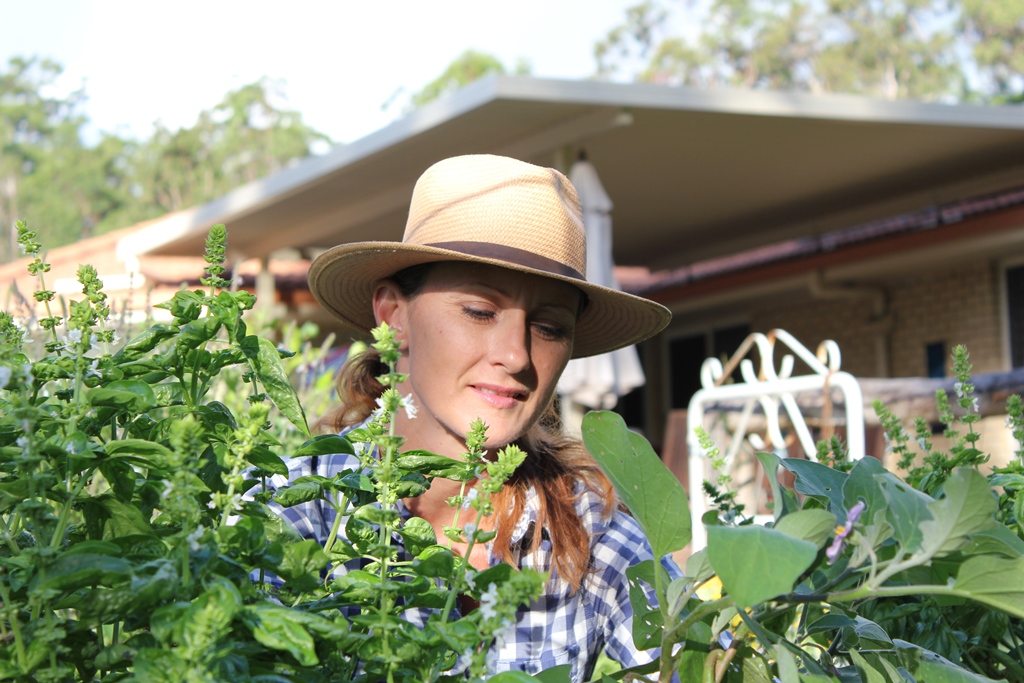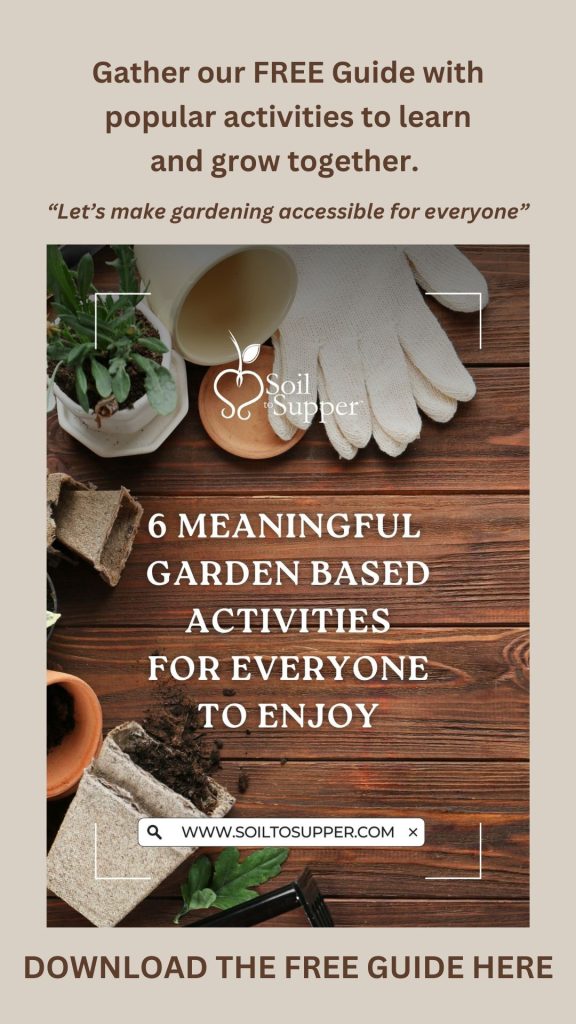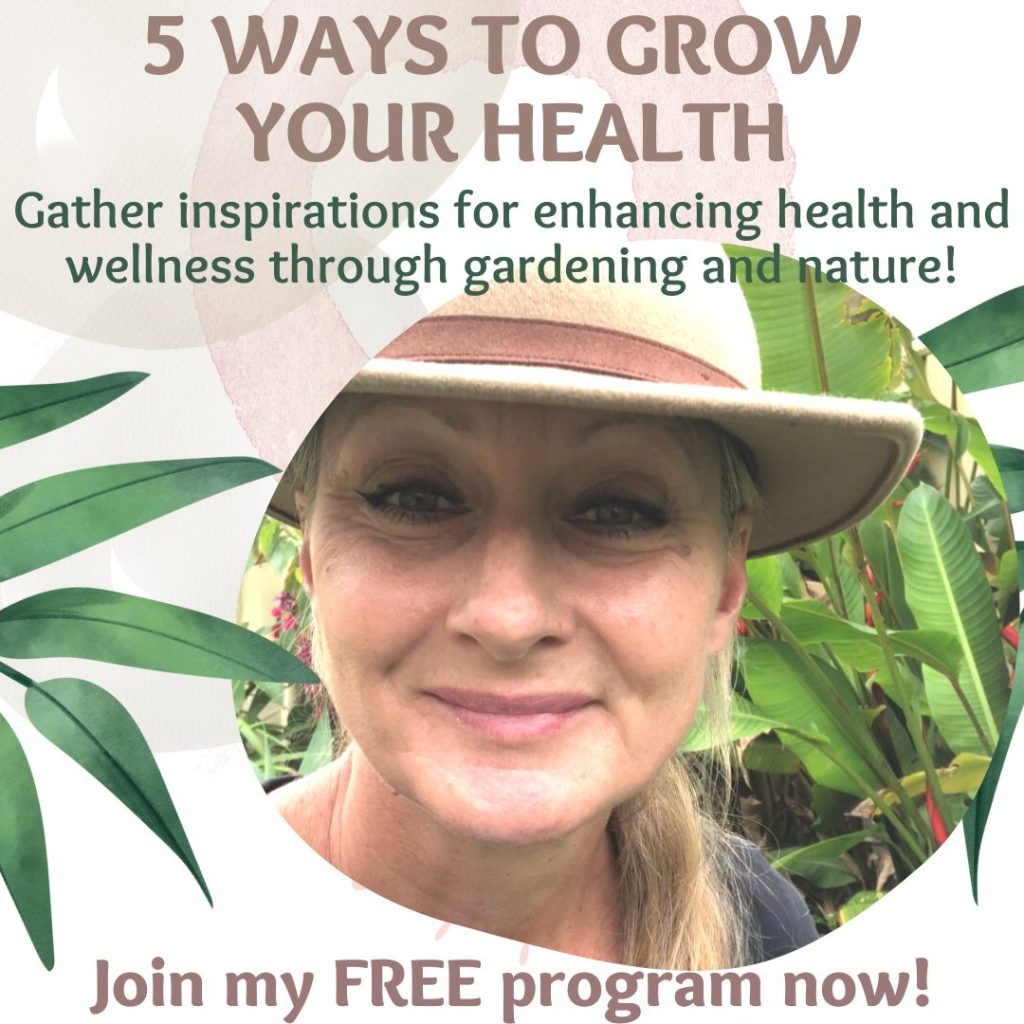In January each year The Ginger Factory hosts the ‘Ginger Flower & Food Festival‘ at Yandina on the beautiful Sunshine Coast.
I was very excited to be invited as a guest speaker at the festival and share my knowledge and passion for organic gardening. Thank You to the staff for a fabulous event and thanks to everyone who joined me for ‘Growing a Healthy Garden’ and ‘Composting with Cath’
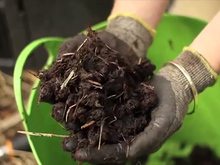 Here’s the notes from my talks. I hope these help you to grow a healthy and thriving garden! ♥ Cath
Here’s the notes from my talks. I hope these help you to grow a healthy and thriving garden! ♥ Cath
- Start with Soil – Understand the ‘Soil Food Web’. One of the most important elements of a healthy organic garden is healthy soil. Read my article here - The Other World Wide ‘Web’
- Go Organic – no chemicals or synthetic fertilisers. Our gardens and ourselves are part of an ecosystem which is a community of organisms working together. To maintain a balanced ecosystem we need to ‘work with nature, not against it’.
- Establish Composting and Worm Farm systems – provides a valuable resource for your garden while reducing landfill.
Here’s the link to my simple Composting method, as mentioned during ‘Composting with Cath’ - Do you know how to Compost?
- Seasonal growing and growing for your climate – grow annuals for your current season, eg warm or cool. Also grow all plants that suit your climate, eg cool, temperate, sub-tropical, etc. Your plants will be healthier and happier growing in the right conditions.
- Polyculture or Intercropping – growing many plants together, rather than just one species of plants, to produce high yield and use garden space more efficiently. Some ideas are…vertical growing of cucumbers, with beans, celery, lettuce and dill. Intercropping also reduces deficiency in soil and reduces pest & disease problems. Consider growing plants together that won’t compete for water, nutrients or sunshine.
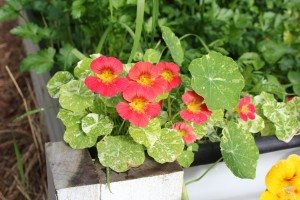 Companion Planting – plants grown together to support each other’s growth. They provide shade, a wind break, natural trellis, ground cover, assists with reducing soil diseases or encourage beneficial insects. Companion Planting also promotes bio-diversity.
Companion Planting – plants grown together to support each other’s growth. They provide shade, a wind break, natural trellis, ground cover, assists with reducing soil diseases or encourage beneficial insects. Companion Planting also promotes bio-diversity.
Marigold grow with tomatoes, cabbages, cucumbers, roses. Nasturtium are good for many plants. Grow them as border and free flowing plants throughout the gardens. Basil & Tomato are also grown together…Yumm!!
Examples of good companion plants are nasturtium, marigold, calendula, dill, sage, parsley, basil, sunflowers, rosemary (deters cabbage moth) borage (attracts bees) and tarragon is a good all rounder to grow throughout gardens.
- Support Species – these are plants that help to support soil & garden health. They are well used in permaculture gardens as they have more than one use. A few of my favourites are Comfrey, Pigeon Pea, Lemongrass, Arrowroot and Nasturtiums.
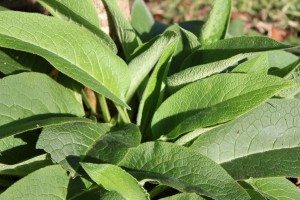 Comfrey is an excellent source of potassium, which is an important nutrient needed for flowering and fruit production. Blood & Bone is low in Potassium (unless you use a product with added Potash) so used together Comfrey and Blood & Bone are fabulous soil improvers and activators in Compost!
Comfrey is an excellent source of potassium, which is an important nutrient needed for flowering and fruit production. Blood & Bone is low in Potassium (unless you use a product with added Potash) so used together Comfrey and Blood & Bone are fabulous soil improvers and activators in Compost!
- Pest & Disease problems – having healthy soil reduces pests and diseases in the garden.
**Permaculture Principle – Use and Value Diversity – work with nature not against it.
**Encourage bio-diversity – attract birds, frogs, lizards and spiders to the garden.
**Most insects are beneficial – praying mantis, most lady bugs, hoverflies, lacewing (targets aphids, mites, scales, mealybugs, moth eggs and small caterpillars), dragonflies, spiders, etc
**Plants that attract good bugs and repel pests – rosemary, thyme, oregano, alyssum, calendula, cosmos, queen’s anne lace, dill, fennel, lavender, marigold, marjoram, mint, chives, coriander.
**Parasitic Insects are so small they usually cannot be seen. They feed on sucking insects and are important helpers for our gardens.
**Pests are chewing or sucking insects. See info here on bugs and home-made remedies for your garden – A Thriving Garden
**Diseases – Examples are leaf spot, mildew, sooty mould, black spot, blight, moulds. Remove all infected foliage and place in plastic bag 4 weeks. No watering foliage at night. Hygiene is very important for reducing disease problems. Disease pathogens are spread by humans, machinery, animals, water and insects. Always clean tools and wash pots before planting. I use Melaleuca or Eucalyptus Oil to clean tools and equipment.
The best solution is healthy soil and biodiversity.
- Caring for Fruit Trees – Feed, Mulch and Prune fruit trees regularly to encourage good strong growth and high yield
- Pruning – Prune shrubs and fruit trees to maintain good shape & suitable size to harvest from. Keep all green waste – It’s a resource!! Chop up and place in large compost bays or use mulcher to then reuse back on gardens. Check trellis and plants that are staked. Redo ties and for climbing plants check growth form regularly.
- Irrigation & Watering – Inspect irrigation systems and hose fittings. Ensure no leaks or blockage of pipes or drippers/sprayers. Drippers are best to save water and ensure moisture enters soil, not lost in atmosphere.
- Harvesting – don’t be afraid to do this! Harvest and enjoy fresh food and flowers before other critters enjoy them. Regular harvesting encourages more flowers and fruit, which is great when you’re growing your own. Share abundant crops with family and friends.
- OBSERVE your garden – Spend time in the garden daily which means you’re observing anything that needs doing, any problems. This is part of nurturing your garden.
Just 30 minutes a day to improve health & well-being will reduce stress, reduce blood pressure, burn kilojoules, for strength & flexibility and improve bone health. More information here…Just 30 minutes in the garden you can…
Enjoy Garden as Therapy…Gardening Improves Emotional Well-Being
My List of Equipment - I have these items on hand to get little jobs done…
- Sharp tools – secateurs, hedging shears and loppers
- Sharp shovel
- Strong rakes – plastic or metal
- Organic products – organic slow release fertiliser, blood & bone, minerals, fine sugar cane mulch, liquid fertiliser, worm juice.
- strong compost bins
- home-made remedies
- propagating and potting equipment
- quality hoses and watering cans
Follow these simple steps and you’ll enjoy a healthy, thriving garden.
Enjoy!!
© cath manuel 1 february 2015

